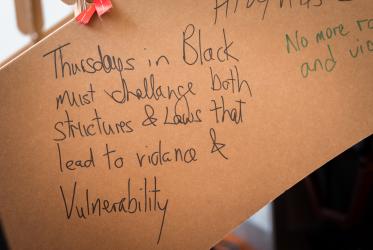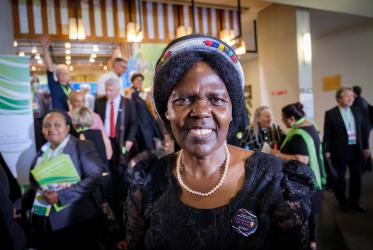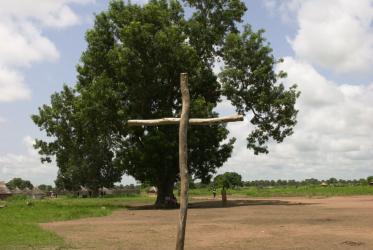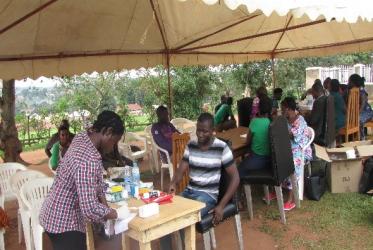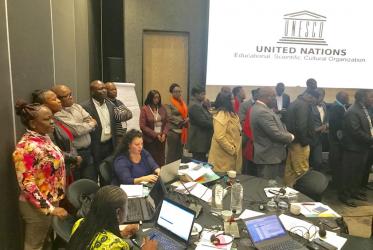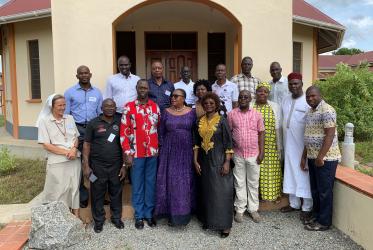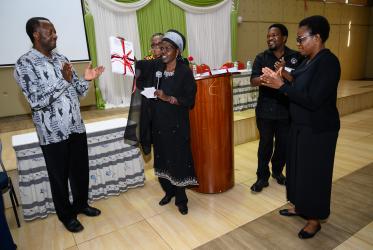Displaying 101 - 120 of 243
18 September 2019
Frontline advocates in Uganda are putting a stop to HIV stigma
16 September 2019
Moravian Church in Tanzania launches Thursdays in Black
10 September 2019
Dr Agnes Abuom: “Enough is enough”
05 September 2019
A passionate Korean feminist and ecumenist
21 August 2019
WCC treatment manuals address HIV challenges in Uganda
02 August 2019
Knowledge of gender roles deepens in Togo
03 June 2019
